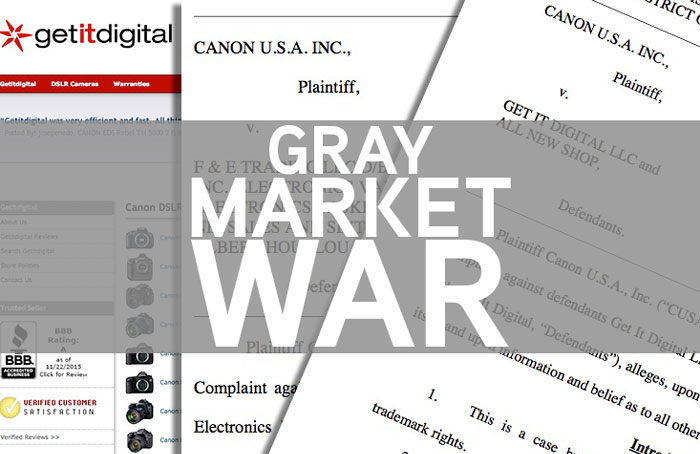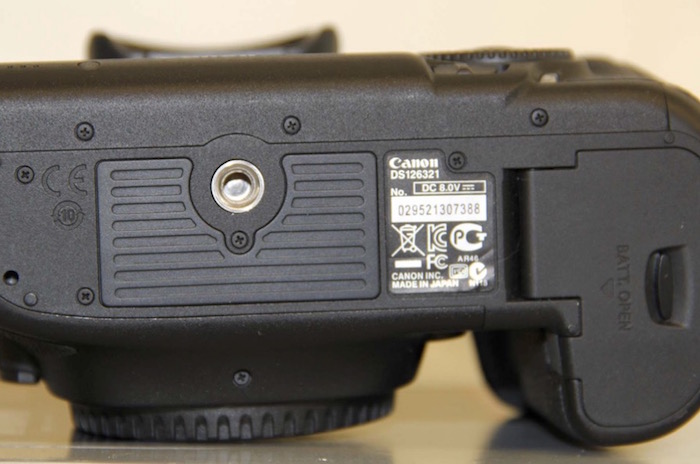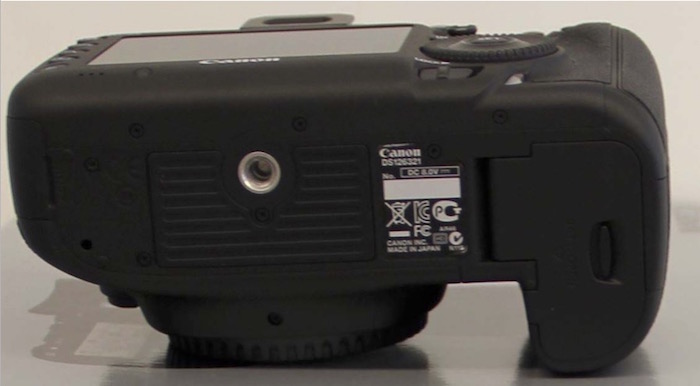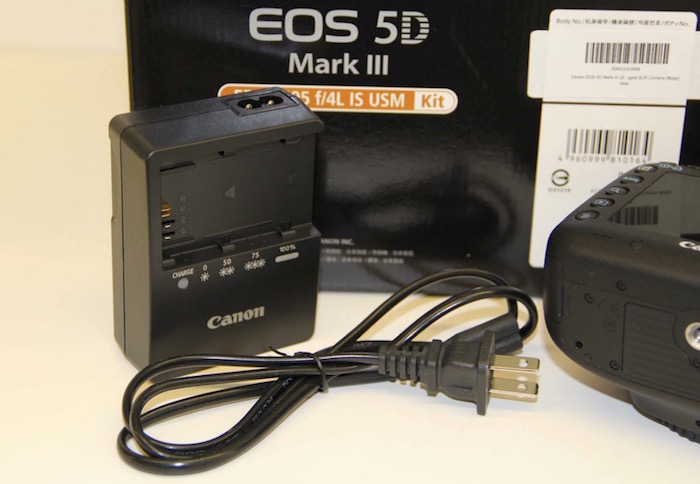
Canon USA filed a pair of lawsuits in October against Get It Digital, LLC and several other widely-known gray market retailers in a effort to force them to stop selling gray market Canon cameras and other products in the United States.
I obtained copies of the complaints and exhibits late last week and have reviewed the allegations made and evidence cited within.
In short, Canon USA cites US trademark statutes to argue that, because it is the exclusive licensee for the US market, the federal court should order the defendants to no longer offer imported Canon products for sale.
Who is Being Sued?
In one lawsuit, Canon USA named Get It Digital, LLC and All New Shop, LLC as defendants. Canon alleges that these two retailers are, in fact, one and the same operator that use the same address for their place of business.
In a second lawsuit, Canon USA named F&E Trading, LLC, which is comprised of the following online retailers: Big Value, Inc., Electronics Valley, Electronics Basket, DavisMax, Netsales and Sixth Avenue. Canon also named the individual Albert Houllou as the president and CEO of F&E Trading, LLC.
What is the Harm?
In the complaints filed by Canon USA and obtained by Photography Bay, Canon alleges that the actions of the defendants harm consumers in the following ways:
- Using counterfeit serial numbers on gray market Canon products
- Lack of enforceable warranties or inferior warranty coverage
- Packaging that does not accurately describe the products contained therein
- The inclusion of cheap photocopies of product operating manuals, as opposed to genuine manuals that accompany genuine Canon cameras
- Power supplies and accessories that are counterfeit, manufactured by third partes and/or not compliant with applicable laws, regulations and certifications
In the complaints, Canon USA provides specific examples of each allegation. For instance, Canon shows a counterfeit serial number on what appears to be a 5D Mark III purchased from All New Shop, LLC, which Canon claims had the original serial number plate removed from the bottom of the camera and replaced with a fake plate.

Canon 5D Mark III Counterfeit Serial Number from All New Shop Exhibit
In another exhibit, a Canon 5D Mark III purchased from Sixth Avenue had the original serial number removed and replaced with a sticker that had a blank serial number.

Canon 5D Mark III from Sixth Avenue Blank Serial Number Sticker Exhibit
In another example of a 5D Mark III purchased from Get It Digital, LLC, Canon alleges that a non-US charger was included along with a third-party power cord without a UL certification. This is perhaps more concerning because we rely on UL ratings for safe operation of electrical components.

Gray Market Canon Battery Charger and non-UL Certified Cable
Trademark Infringement Allegations
Canon USA claims that actions by Get It Digital, LLC and the other defendants constitutes trademark infringement, unfair competition and use of false designations of origin and false descriptions and representations with regard to Canon’s registered trademark.
Canon USA also claims that the defendants’ conduct constitutes unfair competition by passing off, misappropriation and imitation of Canon products under common law.
Because Canon USA believes that the continued practice of selling gray market cameras and other products would continue to violate its trademark rights, Canon is asking the federal court to issue an injunction that orders each of these companies to cease all sales of gray market Canon products.
Additionally, Canon USA is going after all of their profits for gray market Canon products sold by these companies, as well as seeking damages incurred by Canon USA, which could include servicing gray market products and other measures Canon USA has taken in response dealing with the defendants’ gray market camera sales. Finally, is also seeking attorneys’ fees and costs associated with filing these lawsuits.
The damages sought by Canon in these lawsuits could very well reach into the millions of dollars and put these companies out of business for good.
What Does This Mean for Us?
The days of finding discounted gray market Canon cameras could be drawing to a close. We have all seen the rise of these imported camera deals over the past couple of years.
Before that, it was often the case that super discounts on cameras were too good to be true. As Get It Digital and others figured out the economics of imported cameras and breaking up kits to sell separately, the solid deals seemed to be more legit. However, as several allegations in these lawsuits demonstrate, there has always been consumer risk involved.
I don’t know that we have seen anything to date that demonstrates the true nature of gray market camera products until seeing the allegations in these lawsuits. Most of these retailers have very positive feedback ratings and I have personally discussed positive purchase experiences with several Photography Bay readers.
The most troubling allegations to me are the counterfeit serial numbers and including non-UL rated power cords. Frankly, the other allegations concerning different boxes, no warranty cards and such are actually what I expect out of a gray market product. These aren’t necessarily ideal but these are issues I consider known risks when purchasing a discounted gray market camera. In fact, those are things I specifically talk about if I pass on a deal on a gray market camera or lens.
Pending the resolution of these cases, however, I am suspending any recommendations for purchasing gray market products from these companies.
I will be keeping track of these cases as they move forward. The defendants are scheduled to file their answers to the complaints (an “answer” is the first response to a “complaint” or lawsuit) by mid-December.
Stay tuned.
[UPDATE: See the two complaints that I have uploaded to Scribd and embedded below if you want to read them for yourselves.]
Below is the Canon USA v. Get It Digital, LLC, et. al. complaint.
Below is the Canon USA v. F&E Trading, LLC et. al. complaint.


Are they going to Sue B&H and Adorama for doing the same? Somehow I doubt it…
Do B&H and Adorama still sell gray market Canon gear?
I’ve actually been looking for examples to talk about but I can’t find anything gray market from them. I remember that you used to be able to pick the USA or gray market version (it would say it right there on the product page) and save $50 or $100 on a lens or camera at both B&H and Adorama.
I don’t see any designation at B&H anymore but Adorama still says “USA” in the product pages. But I can’t find anything that appears to be gray market.
That makes we wonder about a couple things:
First, have B&H, Adorama and other authorized Canon dealers been hurt enough by low-ball gray market sellers to avoid it themselves and push Canon USA to do something about it? And/or second, Canon USA has pushed its demand that authorized Canon retails stop selling gray market Canon products. Under its agreements with authorized sellers, I’d say it’s likely that Canon has the authority to push that demand.
If you see some gray market products at B&H or Adorama, shoot me some links. I’d be interested to know if they’re still selling them.
I’ll look for a link, but here is an explanation and recognition that they do sell grey market:
“The terms “grey market”, “direct import”, and “Imported”, refer to the same thing in this article. B&H sells most products with a warranty from the manufacturer or from the manufacturer’s licensed importer. We also sell some products we’ve obtained from sources other than the manufacturer or its licensed importer. These are “grey market” products. “Grey market” is not illegal, not factory seconds, not demo merchandise, not cheaper or inferior products. In fact in almost every instance a “grey market” product is absolutely identical to its US-warranted counterpart. “Grey market” and US-warranted products are manufactured in the same factories from the same components, and sub-assemblies, to the same specs and tolerances, by the same workers. In terms of the item itself (excepting PAL video — see below) there is no difference at all. A “grey market” Nikon 50mm f/1.4 D-AF lens (for example) is exactly the same in every possible way as the US-warranted version.”
From: http://www.bhphotovideo.com/find/HelpCenter/USGrey.jsp
Thanks Bob. I have seen that before.
Sure enough, here’s the gray market Nikon 50mm lens labeled as (imported) from B&H:
http://www.bhphotovideo.com/c/product/97413-GREY/Nikon_1902_AF_Nikkor_50mm_f_1_4D.html
I’m very interested to see how this plays out…
you don´t get it….
@ 234gg – Then explain it…
If I understand correctly, the Gray Market products are also made by Canon, but just not for the USA market. Similar to buying a BluRay movie that is for a region other than the USA, right?
If that’s the case, and the sellers are already admitting that these are Gray Market products, why are they messing with the serial numbers? The only reason I can imagine someone would want to tamper with a serial number is if the item is stolen.
I remember B&H and Adorama selling Gray Market products, not sure if they still do, but other than warranty, there didn’t seem to be any difference. Especially since the products were still manufactured by Canon.
That’s my understanding of gray market as well, Jared. However, Canon is alleging that these products are “grayer” than what you and I would expect.
These cameras are, in fact, genuine Canon products but are not intended to be sold in the US market. That’s what Canon USA is upset about as the exclusive Canon distributor in the US. Of course, that is going to affect Canon USA’s bottom line but maybe not the global Canon, Inc.
I don’t understand the serial number issues either and why those would be tampered with. I can’t imagine that the volume of cameras these companies are moving have been stolen. Perhaps the retailers are trying to limit the cameras being traced back to a specific Asian source? That’s pure speculation though.
Canon is not worried about anything but their bottom line. Canon, in the last quarter had a loss, and now is trying to bolster its profit margin. Keep in mind, although Canon makes quality cameras, lenses, printers etc, it also has one of the most paulty warranties in the industry, of one year. It is no secret that parts from one Canon product to another, weather it be “gray” or not, inter-fit. So, the legal argument will fail in this aspect. It may open another can of worms, not in Canons favor. As far as serial numbers, this the same as filing down numbers on a Samsung TV to achieve a fraudulent warranty claim.
How does filing down the serial help with a warranty claim?
I didn’t realize this is something people do…
I did see an article a while back about some sellers disguising lower models as higher ones (for example a D800 sold as a D810 or D800E)
Here’s one such article:
http://www.techradar.com/us/news/photography-video-capture/cameras/is-your-dslr-a-fake-nikon-issues-a-fresh-counterfeit-warning-1291244
Which would explain the serial number plate switch, but for regular grey market, that should just be a matter of purchasing a camera from a shipment diverted from its destination retail point.
It could also be Canon mixing the stories a little to spread a little fear, which would encourage sales from Authorized dealers.
Get it digital has an A rating with the BBB, and a 99.7% Positive feedback on ebay. I tend to trust ebay a little more, since those are ratings from actual purchases (and there are a lot of them).
I think if Get it digital were selling counterfeits, there would be more complaints.
Agreed Bob.
I think ebay does a good job with policing service via feedback. My general rule has been that I don’t pass along deals from ebay sellers unless the feedback rating is 99% or higher.
Perhaps I’m overreacting to this (at least that’s the vibe I’m getting from the comments with regard to these sellers) and I appreciate the feedback I’m getting from you and others here in the comments.
Eric,
I don’t think you are overreacting – you are reporting what Canon is doing. I’m willing to bet what you’ve posted is accurate, or has a high probability of being accurate.
The manufacturers have never been a big fan of Grey market goods, but I’m willing to bet that they don’t go after the likes of Amazon, B&H, Adorama, etc. even though they are all authorized dealers, simply because of the sheer volume of equipment they sell. Can you imagine if the worlds largest retailer, and a couple of the two oldest photographic retailers are no longer carrying Canon? That would be a huge windfall for Nikon, Sony, etc.
The interesting thing is that selling grey market isn’t really illegal, and the third party sellers aren’t authorized dealers, so Canon doesn’t really have any hold over them legally, but anyone can sue anyone, and Canon is so big, they may be able to litigate them into submission just through the cost of attrition. It’s a bully move, but not one that is going to make any difference in the brand to consumers.
I hope Nikon doesn’t make the same move.
It will be interesting to see how it plays out for sure :)
…still not as bad as Apple who sues everyone for everything:
http://www.neowin.net/forum/topic/974146-apple-goes-after-ipad-cutting-board-developer/
The only thing I can think of is that removing serial numbers hides the origins and sources of a product. However, I assume that the serial is coded into most cameras hardware/firmware, so it’s a useless activity.
This is a Canon USA problem, not a Canon Camera problem. Ultimately, Canon Japan doesn’t care because a unit sold is a unit sold. The only reason gray market cameras are available at much lower prices (other than currency fluctuations) is that Canon USA marks them up to cover marketing, promotion and customer service. When you buy a USA import, you pay for the warranty, you pay for explorers of light and all that stuff. You pay the salaries of people working for Canon USA.
In the past, these cases have been unwindable because, unlike counterfeits, the customer is not harmed. Nikon USA has had this problem for decades and having lost time and again, will no longer touch gray equipment. This has been their revenge, having been unable to prevent gray imports.
I think Canon USA may have spotted an opportunity since tampering with a product actually does make it different from the non-gray version although the UL designation on a charger is a stretch since that charger is safe to use everywhere else in the world.
When you consider all aspects of this litigation, a number of things come to mind:
1) All Canon cameras are manufactured by Canon, there are no authentic and counterfeit Canon 5DS or 6D, all these cameras come from the same assembly line, regardless of their final destination.
2) The availability of cheap grey market products is a boost for Canon Corporation’s bottomline, notice I say Canon Corp not Canon USA distribution channels since a good proportion of these merchandise are purchased by hobby photographers who will play with them for a few months to a year then dump them back on ebay after a few thousand clicks. For these folks, a manufacturer warranty isn’t worth the full retail price, and a Canon 5DS R selling for 3K or less might be far more palatable than the same body selling for $3900.
3) Most of these grey / import ebay sellers didn’t get a 98-99% positive ratings from several 100K transactions on ebay over many years by selling junk or counterfeit merchandise.
I personally think this whole suit is something cooked up by Canon USA right before Black Friday to scare prospective buyers away from ebay and into the open arms of B&H, Adorama and Amazon, time will tell.
Good thoughts. I agree on all points and think you have an interesting theory on your final thought…
I wish that Canon would keep the same nomenclature for their cameras. The Rebel series, for example, used to actually make sense: Canon 300D, 350D, etc. Then it changed to Canon XTsomething Tsomething, etc. Meanwhile overseas those same models retained their numerical nomenclature, which to me makes more sense.
Just a little nit-pick to add to this conversation about USA models, that’s all.
Preach!
Those relying on the positive ratings percentage provided by the seller are recommended to trace the source of these ratings and judge their reliability. Comparison to the ratings of independents such as http://www.resellerratings.com would also be helpful.
Canon is the most aggressive direct online retailer of its own products among the camera companies, competing against its own retailer customers. In some countries it has its own retail chains. (Note the story above this one on this website about its direct-to-consumer Black Friday deals.) The retailers don’t like it but you can’t not stock Canon – not even B&H. So this move protects its own retail business and puts a block on retailers who might look for an alternative source of supply rather than supporting a business which is also a competitor. While a Canon retailer might make 10-20 percent on a DSLR sale, Canon USA (or wherever, really) gets the DSLR from Canon Japan at landed cost, adds the 30-35 percent wholesale margin, and then the retail margin. It’s online store must be the most profitable segment of its imaging business. I think Canon is trying to be the Apple of cameras. It’s increasingly divorcing itself from the industry in which it is the putative ‘market leader’ (some leadership!) and screwing its previously loyal photo specialist dealers. It wants to own the relationship with the consumer and cut out those pesky middlemen.
Reading this story reminds me that of a situation from the past several years. My memory is a little foggy, but I recall that eBay and possibly other merchants here in the States were being sued by several companies for selling merchandise that had not been intended for US markets.
The main reason I recall it at all was that college-level books were that were identical to those being sold here were being imported in mass quantities, brand new, from overseas and sold at a discount since they were sold for far less in overseas markets.
Anyway, I seem to recall the Supreme Court ruled in favor of eBay and the various merchants that were using capitalism at its purest form, much to the chagrin of the publishers and companies that brought the lawsuit.
I picked up an “import” college book that was intended for India. Got me through my course, and saved me money, too.
But nobody replaced the serial number on my book. …at least I don’t think they did!
It’s probably similar to the “region codes” for DVD and Blu Ray discs. I recently bought a Blu Ray movie for my wife on eBay, only later to find it was “Region B” which is fine in the UK, but not the USA.
It is my understanding that B&H no longer sell Grey bodies, only lenses and possibly speedlights are available in grey.
Non-UL power cord? So what? Are you kidding me? Everyone can make totally usable and safe one even at home! This is absolutely no problem for me just as not that pretty manual, which is often not read anyway. Usually they can be downloaded as pdf anyway. I would be upset though if someone would refuse to fix my equipment. The warranty is the only real problem here imho.
Reading this article made me angry with official distributor. They don’t care about us at all. They are scared they wont be able to make few-hundred-dollars profit on each camera anymore.
If the court is going to rule in favour of official distributor it will be a victory of monopolist over consumer rights to choose what best fits their needs and budget.
Just curious, but whatever happened with this case? I actually bought a 5D Mark III from get it digital in February of 2015.
also if you’re really interested in seeing some additional instances of the business practices, this thread has some detaill
https://slickdeals.net/e/7670536-canon-eos-5d-mark-iii-22-3mp-digital-slr-camera-body-only-2000-free-shipping?v=1&page=12